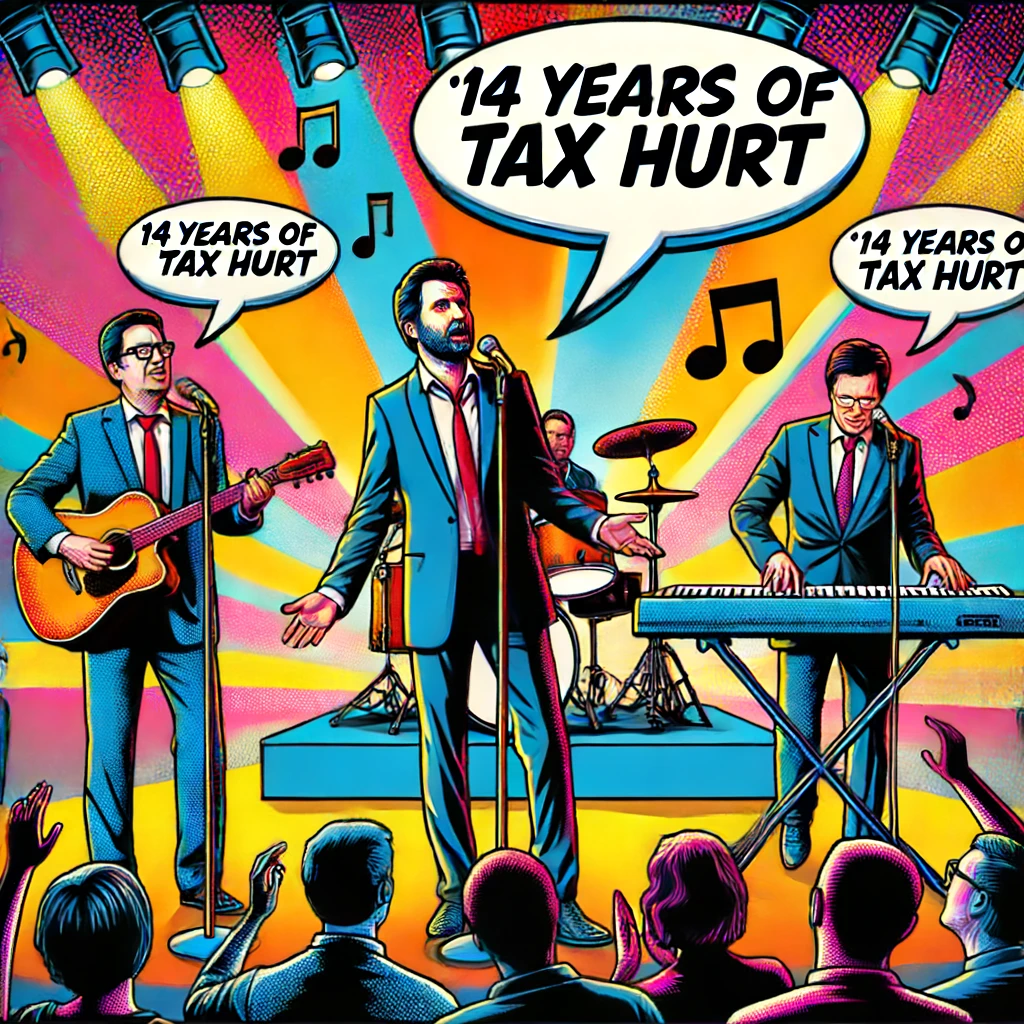
(TAXING) THE BIRD IN THE HAND… AND THE TWO IN THE BUSH?
Read more
June 18, 2024 | 5 min read
Author: Andy Wood

Aaah yes. The English Summer.
Cricket and croquet played on freshly cut grass, tea and scones before retiring to the Pimms tent.
Hurrah old chap.
However, for those unfortunate to spend the months between May and September in the UK, the reality is more Morrissey than Wodehouse.
Hardy families in cagoules huddled around polystyrene trays of seaside chips. If the wind and hail doesn’t take away the quickly cooling fare, the Seagulls certainly will.
But it’s not just hay fever and mizzle in the air.
Prime-time booze adverts by the major supermarkets, wall to wall betting promotions and forests of miniature flags can only mean one thing.
Euro ’24 is upon us.
With it, comes England fans’ now familiar refrain that “football is coming home”.
Almost three decades after the song first appeared on airwaves and terraces, it now seems not just dated but careworn as mid-Nineties’ confidence has given way to resignation.
Yet the prospect of Euro ’24 finishing just over a week after the General Election has presented us with a novel, economic variant.
Last week, the Institute for Fiscal Studies (IFS) presented us with a review of the Conservatives’ record on tax since initially taking power in 2010 as part of a coalition with the Liberal Democrats.
According to the Institute, it amounts to “14 years of missed opportunities”, a summary which, I admit, doesn’t quite have the same lyrical flow to emulate Messrs Broudie, Skinner and Baddiel.
The IFS’ research indicates that the very tax problems which confronted the country after Gordon Brown left 10 Downing Street have not been addressed.
In fact, things have become worse.
Tax now makes up a larger share of national income than at any stage since 1948.
The tax code has, the IFS declares, “never been longer” and more complex, instead of producing “a tax system that is fairer or more economically efficient”.
Without advancing any personal party political preference, it’s quite easy to reel off a litany of controversial tax measures which have left individual and corporate taxpayers not quite knowing where they stand.
Since 2010, we’ve had the introduction of the loan charge and a subsequent independent review about whether it is “proportionate and fair”.
We perhaps have less clarity on the off-payroll or IR35 rules which have tangled freelances, celebrities like Adrian Chiles and tax tribunals up in knots.
To both of those, we can add confusion about changes to child benefit arrangements for higher earners.
Since George Osborne was appointed as Chancellor, Property taxes have been seen as a bit of a magic money tree. The Treasury has repeatedly revisited this asset class as the goose that never stops laying – including the infamous Clause 24 which imposed a tax on many landlord’s phantom profits.
In addition, we have seen the transformation of Stamp Duty Land into a labyrinthine nightmare (no, not because David Bowie and a load of the Muppets are hanging around).
I have still have only scratched the surface.
The constant rethinking regulations is almost like Gareth Southgate’s men lining up for a penalty shoot-out only to have some fiendish rule-makers moving the goalposts from side to side as Kane, Bellingham and Alexander-Arnold address the ball (mind you, this might have helped with some of our shootout results over the years!)
I would suggest that a lack of clarity is part of the problem when it comes to HMRC’s fabled ‘tax gap’ – the difference between expected tax receipts and what actually lands in the Treasury’s coffers.
Revenue data shows that in the 2021-22 financial year, the gap was £35.8 billion or “4.8% of total theoretical tax liabilities”.
Again, despite what a number of the manifestos might suggest, a barely material amount of this is related to “avoidance” (just 4% in the latest figures). Only 13% is attributed to “Evasion”.
However, 30% is attributable to “failure to take reasonable care”, 15% down to “error” and 12% to a difference in “legal interpretation”.
So, when it comes to ‘cracking down’ on tax behaviour, it is not “avoidance” which should be the main target.
We should be cracking down on complexity.
Surely, tax law should be simple enough for a reasonable person to be able to work out how much they need to pay?
How much is the difficulty down to fast-changing political stewardship? After all, having five Chancellors in the last five years is not, the IFS remarks by way of euphemism, “a recipe for stability”.
It is like football teams expecting bulging trophy cabinets despite having a revolving door outside their manager’s office (Everton take note).
At least some of the key personnel involved continue to rack up the honours.
The King’s Birthday Honours, for instance, included a knighthood for Jim Harra, HMRC’s Permanent Secretary.
This is the same Jim Harra whose organisation was in February accused by the House of Commons’ Public Accounts Committee of providing customer service which was at an “all-time low”.
HMRC critics might say that his reward brings to mind the observation once made by José Mourinho about Arsene Wenger’s being a “specialist in failure”.
Might fortunes be about to change, though, and could the forthcoming General Election deliver an administration which can deliver a winning performance for taxpayers and the economy?
Well, like dreaming of a simple tax system, or a trophy for the mighty Toffees, it is the hope that kills us.